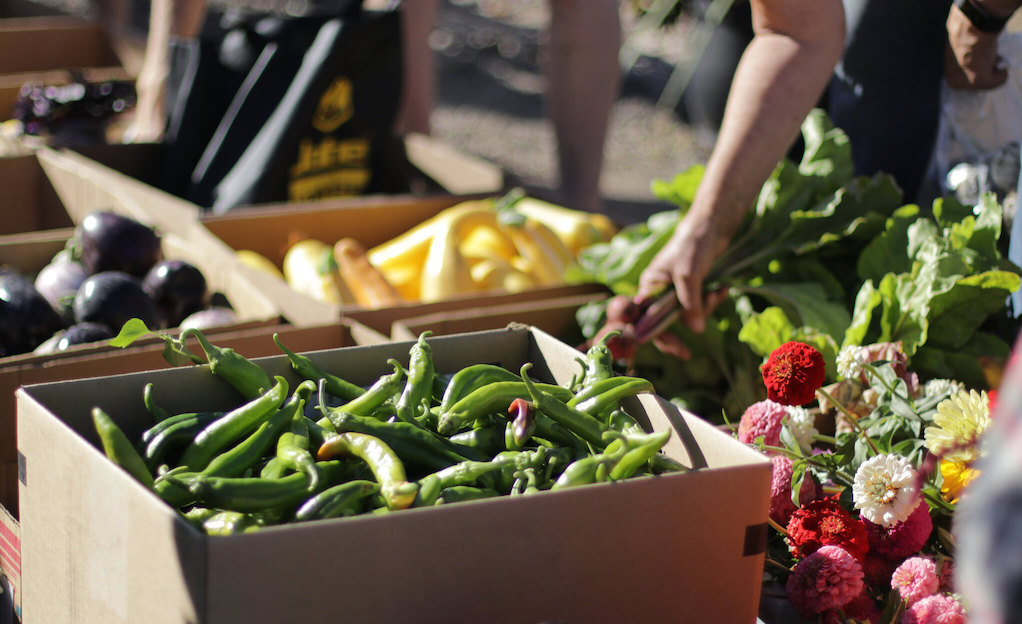In early August the United Nations Intergovernmental Panel on Climate Change (IPCC) released an important report on food, agriculture and climate change. The IPCC report was prepared by 107 scientists, from 52 countries, more than half of which are developing nations.
This report, entitled Climate Change and Land, is important, because finally there is a comprehensive global analysis of the impact of diet and agricultural production on climate change. The report notes that to meet our climate-change commitments, we need to address issues related to agriculture, since food production is currently responsible for at least 23 per cent of greenhouse gas (GHG) emissions.
The problem with food production is not scarcity (at least for now) but rather how we produce food, how we distribute it and to whom. We all know by now that almost 800 million people on this planet are undernourished, while many billions of people have more than enough to eat. In previous columns I have highlighted a book written on the topic called Stuffed and Starved. It is not just the quantity, but also the quality and the type of the food produced that is at issue.
The IPCC report is also important because governments and consumers across the globe appear to be taking note. It appears to be confirming what some farm and environmental groups have been stating for several decades — that how we produce, consume and distribute food must change. Now, given the commitments of the Paris climate agreement, food production practices must change if we are to keep global warming below 2 degrees and hopefully closer to 1.5 degrees.
The report notes that while certain agricultural practices are adding to carbon emissions and climate change, the impact of sea level rise, drought and flooding will continue to affect agricultural production in various parts of the world as well. In other words, we have to worry about the emissions created to produce food, but we also have to realize that as climate change takes hold there will be losses in food production due to drought and flooding. Given certain conditions, the report notes, it could mean a collapse of the global food system. That is by no means certain, but possible — and is a little bit like predicting tornadoes.
The report also emphasizes that we need to change our eating habits (consuming more grains and vegetables, less animal-based protein) as well as changing where food is produced (stop expansion of agricultural lands and deforestation, reduce the GHG emissions used to produce food, etc.)
The solutions, according to the UN panel, will also vary across the planet, depending on local conditions and economies. The key wording in the report is that all countries must emphasize sustainable eating practices and diets, as well as encourage sustainable agricultural practices.
In other words, cattle production based on clear-cutting forests to achieve more grazing land is not sustainable. Meanwhile, a small landholder grazing operation might be considered sustainable. Eating more grains is sustainable, but likely only if they can be produced close to where they will be consumed so that they do not have to be transported across the planet.
The report is clear in noting that what might seem to be a solution really depends on context. But the objective is clear: there should be zero carbon emissions from agricultural production. The report is clear that land is both a source and a sink for GHGs and so sustainable land management can help reduce the effects of climate change.
In releasing its report the IPCC stated:
“Coordinated action to address climate change can simultaneously improve land, food security and nutrition, and help to end hunger. The report highlights that climate change is affecting all four pillars of food security: availability (yield and production), access (prices and ability to obtain food), utilization (nutrition and cooking), and stability (disruptions to availability). …Balanced diets featuring plant-based foods, such as coarse grains, legumes, fruits and vegetables, and animal-sourced food produced sustainably in low greenhouse gas emission systems, present major opportunities for adaptation to and limiting climate change.”
Another report released in January of this year by the EAT-Lancet Commission advanced similar concerns regarding global food production and carbon emissions. That report, Food in the Anthropocene: the EAT-Lancet Commission on healthy diets from sustainable food systems, similarly included strategic policy advice for governments and consumers regarding healthy diets and sustainable food systems.
Given all of this information, it is clear that the UN and all governments will need to invest in and forge alliances with farmers and civil society organizations to create roadmaps that advance healthy food-production systems.
Both the UN and the EAT-Lancet Commission reports noted that food quality and reducing waste should also be priorities when it comes to sustainable systems and climate change.
My hope is that governments drafting policies to reduce carbon emissions will be forced to dig deep and really define a sustainable food system — and what it takes to create one. Along the way, issues of monoculture, diversity, land size, farm inputs such as artificial fertilizers and pesticides, compensation that rewards farmers promoting sustainable practices, and the affordability of food will all have to be discussed.
The task is huge.
Earlier this year, federal funds were allocated to begin a discussion on a Canadian food policy.
Groups such as Food Secure Canada and the National Farmers Union have been waiting decades for this discussion.
The time has arrived!
Lois Ross is a communications specialist, writer, and editor, living in Ottawa. Her column “At the farm gate” discusses issues that are key to food production here in Canada as well as internationally.
Image: viquee1/Flickr




